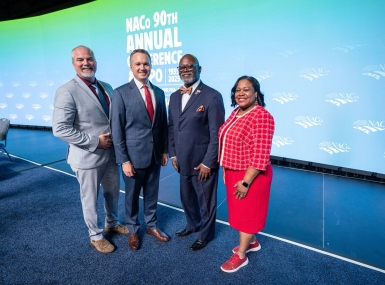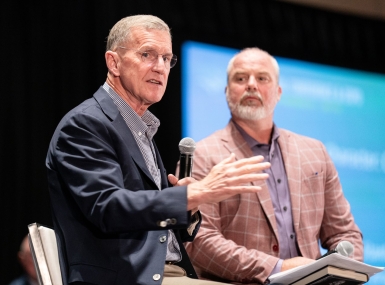American Beverage Association weighs in to combat obesity rates
Upcoming Events
Related News

America’s beverage companies have a long history of putting competition aside and stepping forward with meaningful solutions to societal challenges. The latest example of this is the beverage industry’s commitment to reducing sugar and calories consumed from beverages in the American diet.
In the fall of 2014, The Coca-Cola Company, Dr Pepper Snapple Group, PepsiCo and the American Beverage Association joined with the Alliance for a Healthier Generation, founded by the Clinton Foundation and the American Heart Association, to launch the Balance Calories Initiative.
The goal of this landmark initiative is to reduce beverage calories consumed per person nationally by 20 percent by 2025 — the single-largest voluntary effort by an industry to help combat obesity.
To meet this ambitious goal, the companies are rolling up their sleeves and taking broad and measurable actions to drive consumer behavior change nationwide. Importantly, an independent auditor will evaluate and publicly report on the companies’ progress toward this calorie reduction goal.
A key component of the Balance Calories Initiative is the Community Initiative, a focused effort in communities with high obesity rates where calorie and sugar reduction from beverages have lagged behind the rest of the nation.
Five communities have already been selected to participate in the targeted effort: neighborhoods in Los Angeles, Little Rock, Ark. and New York City, as well as Alabama’s Montgomery and Lowndes counties, and Coahoma, Panola, Quitman and Tunica counties in the Mississippi Delta. The effort will eventually include eight to 10 communities nationwide.
America’s beverage companies are bringing their strengths in marketing, innovation and distribution to bear on this challenge — along with essential insights from the community itself. And working with the alliance, they are engaging with community leaders to better understand the challenges in their neighborhoods and learn from them what ideas and support they might have for achieving the goal.
In these test-and-learn markets that are a part of the Community Initiative, more no- and low-calorie beverages, as well as smaller portion beverages, will be made available to people in the places they shop, eat or grab something on the go.
Calorie awareness messages will be placed on vending machines, fountain equipment and coolers in retail locations to inform consumers about their beverage choices and the calories they contain, and nudge them to consider all of their options to help them find balance.
It is a reminder to “Balance What You Eat, Drink and Do” before making a beverage choice. The balance message also will be prevalent throughout the community on billboards, in grocery stores and at gas stations.
Achieving this ambitious goal will no doubt be challenging, but America’s beverage companies are committed to working together with government leaders, public health groups and community organizations.
Attachments
Related News

J.D. Clark takes office as NACo president
J.D. Clark stressed the importance of telling the county story as he took office as NACo president.

Leading with purpose: Lessons from a four-star general
What do a county leader and a four-star general have in common? More than you might think.

Former FEMA chief is bearish on reform talks
Former FEMA Administrator Brock Long has yet to hear any proposals for federal disaster reform that would make a significant improvement to the way it operates.